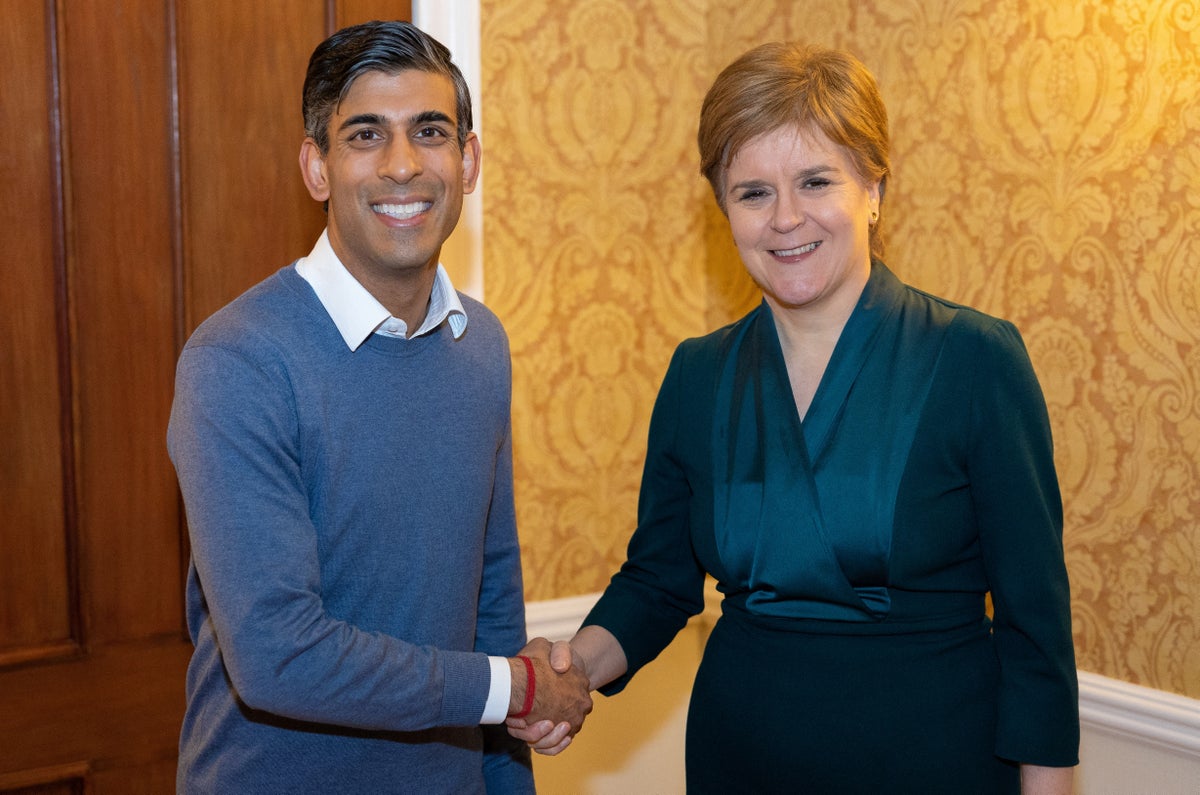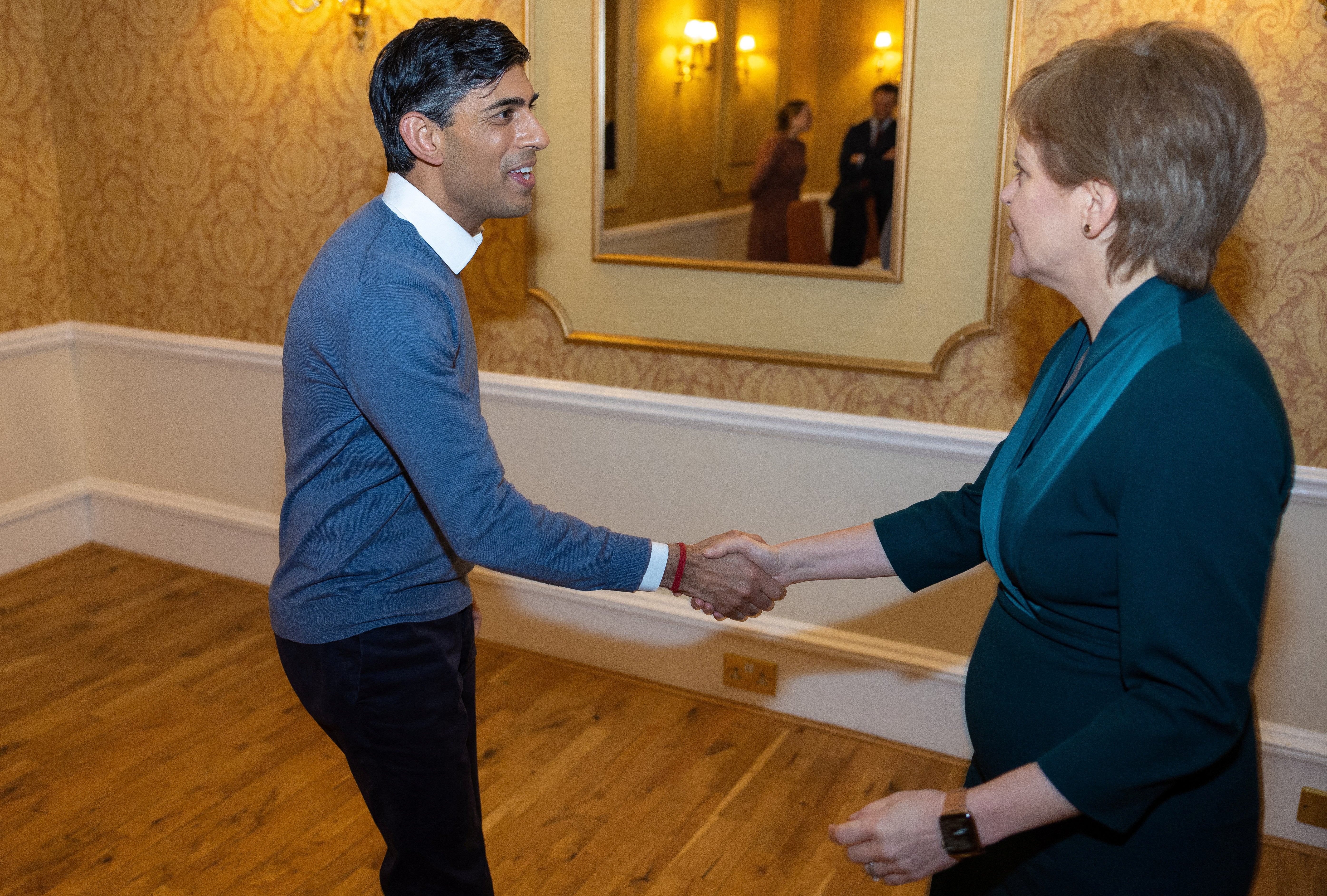
Rishi Sunak has expressed “concern” about the potential impact of Holyrood’s gender recognition laws across the UK.
Scotland last month became the first part of the UK to approve gender self-identification plans, hailed by some as a major step in reaching equality, while others protested over the rights of women and girls.
The reforms remove the need for a medical diagnosis of gender dysphoria before a gender recognition certificate can be obtained.
Speaking to BBC Radio Scotland’s Good Morning Scotland on Friday, Mr Sunak declined to say whether Westminster could block the legislation, saying the government was taking advice on the issue “as is completely standard practice”.
He said: “Obviously this is a very sensitive area and I know there were very robust debates and exchanges on it as the Bill was passing in Scotland.
“What I’m concerned about is the impact of the bill across the United Kingdom.
“As is entirely standard, the UK government would take advice on that.
“There may be impacts across the UK that we need to be aware of and understand the impact of them, and that’s what we’re doing, and once the government has received final advice it will set out next steps.”

The Gender Recognition Reform (Scotland) Bill was passed by MSPs in December by 86 votes to 39. The main element of the bill is to make it easier for transgender people to obtain a gender recognition certificate (GRC) by removing the requirement for a medical diagnosis of gender dysphoria.
It will also lower the minimum age for applicants from 18 to 16 and drop the time required for an applicant to live as their acquired gender from two years to three months – six for people aged 16 and 17 – though with a subsequent, three-month reflection period.
When it was passed, the UK government said would look closely at the legislation and its impact on the UK-wide 2010 Equality Act.
This would include ministers weighing up whether a Section 35 order should be sought to stop the bill from passing into law if there are reasonable grounds to believe it would adversely affect the operation of UK-wide equality legislation reserved to Westminster.
Mr Sunak’s comments follow a round of talks between Mr Sunak and first minister Nicola Sturgeon in Inverness on Thursday evening.
On Friday, Mr Sunak said he wanted to work “constructively” with the Holyrood, saying that while they were “not going to agree on everything”, he believed there was scope for cooperation.
“What I want to do as prime minister of the United Kingdom is work constructively with the Scottish Government to make a difference to people in Scotland,” he told the broadcaster.
“We’ve got lots of challenges that we all face collectively around the UK and where we can work together and make a difference, we should.”







